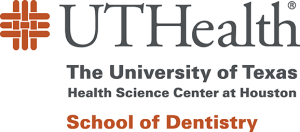Latortue completes PIC Educators Fellowship
Published: September 25, 2024 by Kyle Rogers


Assistant Professor Marie Latortue, DDS, MS, of UTHealth Houston School of Dentistry has completed the National Dental Training Center for Primary Interdisciplinary Care (PIC) Educators Fellowship.
The two-year fellowship, offered through the Health Resources and Services Administration and the University of Rochester Medical Center’s Eastman Institute for Oral Health, ran from Sept. 1, 2022, to Aug. 31, 2024.
Latortue was one of six trainees in the inaugural cohort.
“Being involved in this innovative program was indeed a remarkable experience,” said Latortue, who has served on the Department of General Practice and Dental Public Health faculty since 2018. “The Health Resources and Services Administration’s (HRSA) objective is to provide comprehensive education to dental faculty, enabling them to enhance their educator skills. Having personally participated in the program, I affirm that it met and exceeded HRSA’s expectations. The impact and value of the program were truly outstanding.”
With a long-term goal to support the career development of junior dental faculty teaching in general dentistry, pediatric dentistry, or public health dentistry, trainees were exposed to a variety of learning experiences related to their career development and advancement, pedagogical skills, issues of health care disparities, and multi-level assessment strategies including National Provider Identifiers, telemedicine/dentistry, and integrated primary health care.
The education and training consisted of online formal courses leading to an Advanced Certificate in Education for Health Professionals, select public health science courses, and courses in systematic reviews and scientific writing.
“The benefits of participating in the program far outweighed the initial challenges,” she said. “I gained valuable knowledge in various health care development and clinical teaching topics throughout the two-year program. Some of the topics covered included geriatric care, career development, clinician educator series, practical education theory, curriculum development, time management, teledentistry, wellness strategies to prevent burnout, mentoring, scientific writing, structural racism in health care and research, epidemiology, oral health literacy, leadership courses, community engagement, antibiotic use in dentistry, self-directed learning, program evaluation using logic models, and practical strategic planning concepts.”
The six fellows also spent three weeks annually at the University of Rochester, with airfare and housing provided. Each week included intensive seminars on interdisciplinary primary care and career development topics.
“My time at the University of Rochester was genuinely remarkable,” she said. “One of the highlights was connecting with faculty members from California, New York, Pennsylvania, and Michigan. Over the two years of the program, it became evident that the fellows shared a strong bond and common goals.
“I also gained valuable insight into the cultural factors contributing to health care disparities in the Rochester area. I was particularly impressed by the university’s unique graduate program, such as their specialized care for obese patients and the support provided by social workers for pediatric and elderly patients in community clinics and at the dental school. Overall, it was a fulfilling experience.”
Latortue’s mentor for the PIC Educations Fellowship was Lisa Cain, PhD, professor and associate dean for professional development and faculty affairs at UTHealth Houston.
“I highly recommend participation in the program,” she said. “It equips faculty with the necessary tools to develop as educators, enhance confidence in providing feedback to students, facilitate networking beyond the institution, and establish the essential foundation for faculty to mature in clinical teaching, research, and, crucially, leadership skills vital for educators.”

